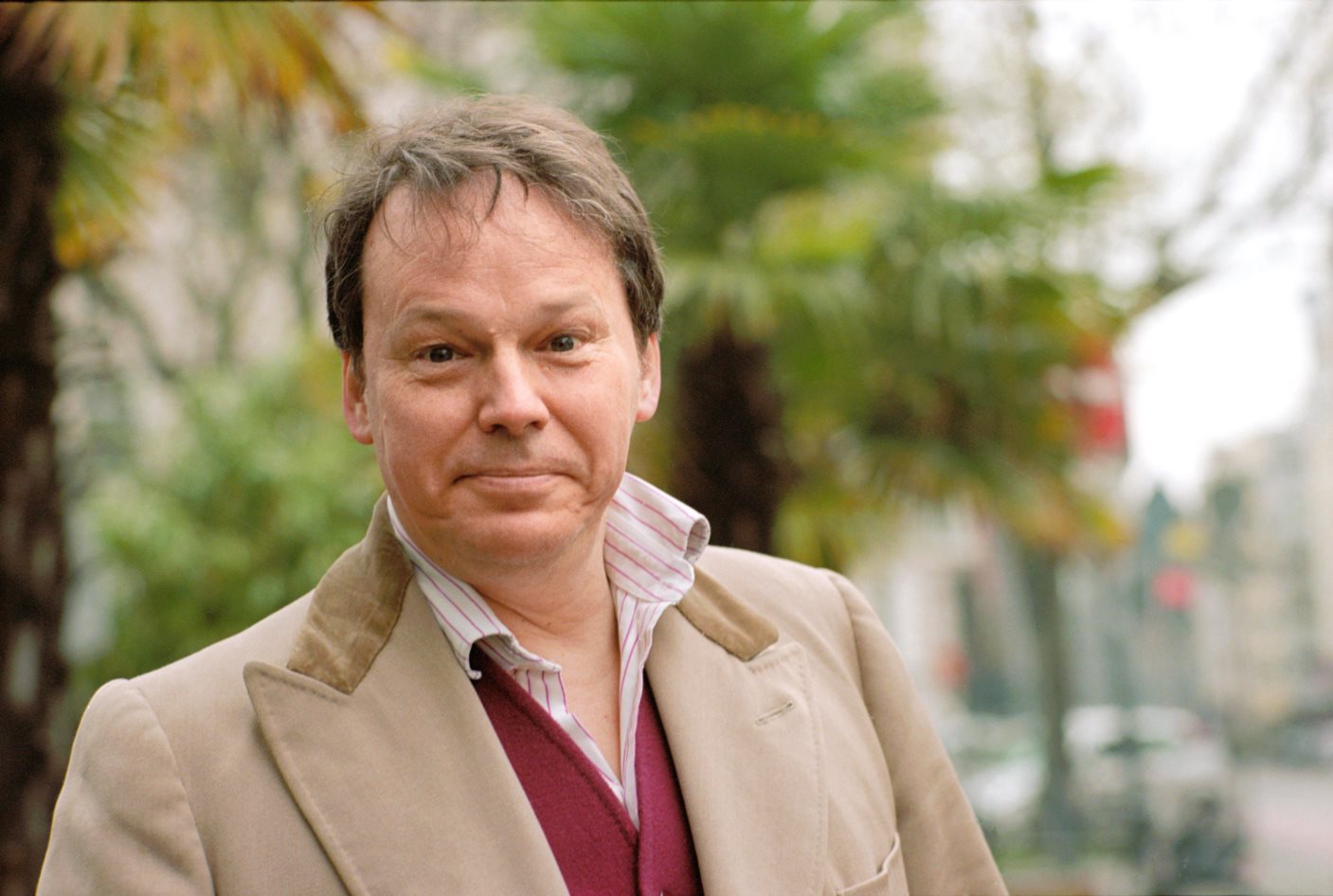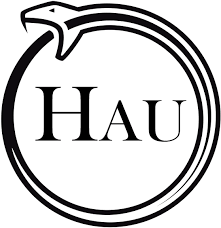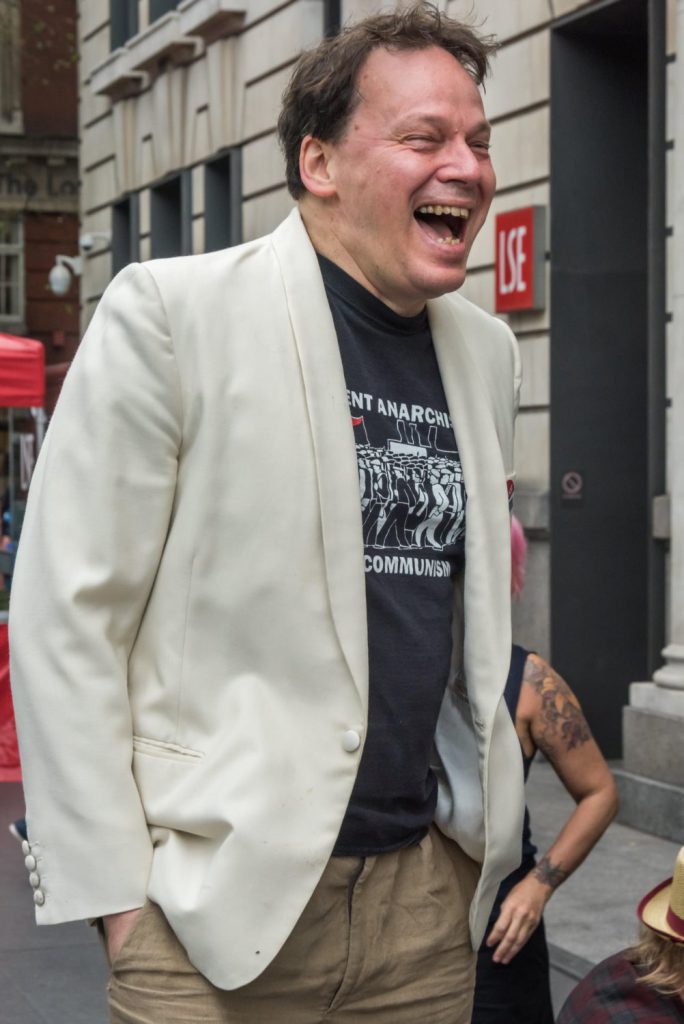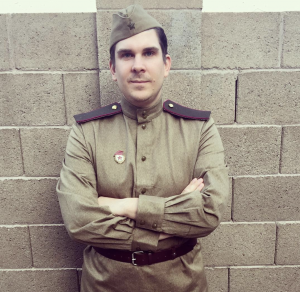Anthropology
How David Graeber Cancelled a Colleague

At the height of the #MeToo scandal in 2018, when dozens of actresses were coming forward with sordid testimonies about Harvey Weinstein’s sexual predation, a much more obscure scandal was unfolding around an academic journal involving the anthropologist David Graeber. The journal—HAU: Journal of Ethnographic Theory—was imploding after Graeber, a former editor-at-large, alleged that members of staff had been treated in “shocking ways” and made a public apology, distancing himself from the enterprise. No specifics were given, but accusations spread like wildfire on social media. Many treated the scandal as a pretext to demand that the discipline of anthropology itself undertake a period of introspection and soul-searching. Some said that this was anthropology’s #MeToo moment.
HAU was set up as a digital publication by the Cambridge PhD student Giovanni da Col in 2011, while he was working in the Mongolia and Inner Asia Studies Unit under the supervision of Caroline Humphrey. While many students have had concerns that anthropology is a field in decline, da Col actually wanted to do something about it, by establishing an open access journal that would promote the highest quality scholarship possible. Named after the Maori concept of hau in Marcel Mauss’s book The Gift, the journal was inspired partly by resistance to the corporate publishing model, and partly by scepticism about the influence of continental theory on anthropology. Because anthropology has traditionally

been the study of human societies, their cultures and their development, the journal was to focus on ethnography, not fashionable post-modern theory, which would return the discipline to its roots. In their co-authored foreword to the first volume of HAU, Graeber and da Col explained that their chosen logo of the ‘ouroboros’—a serpent eating its own tail—was a symbol not of chaos, but of regeneration. Their journal was going to resuscitate the field.

LSE Professor of Anthropology David Graeber speaks at ‘Resist: Festival of Ideas and Actions.’ Peter Marshall/Alamy
Although David Graeber co-authored the foreword to the first issue of HAU, his association with the project was mostly ornamental. The author of best-sellers Debt: the First 5000 Years and Bullshit Jobs: A Theory he achieved fame as a political activist during the Occupy Wall Street movement. Having coined the phrase “We Are the 99%,” his name is inextricably linked with “millennial socialism.” He is also the world’s most famous anarchist and is a self-described “Black Bloc veteran” (a ‘Black Bloc’ is a tactic used by protestors who wear black clothing and masks during civil unrest.) In one article published at The Anarchist Library, he proposes that governments and laws are unnecessary, because when people are left to their own devices they naturally behave in decent and democratic ways. In another essay titled “Anarchism or the Revolutionary Movement of the 21st Century” co-authored with Andrej Grubacic, he explores what he describes as “ethical discourse about revolutionary practice” which includes asking the questions “should we condemn someone who assassinates a head of state?” and “When is it OK to throw a brick?”

Giovanni da Col
Giovanni da Col, on the other hand, is famous neither as an activist nor an anthropologist. Despite not having finished his PhD, he has been a prolific contributor to academic literature on topics including Tibetan personhood, ethnographic theory and folk theories of luck and fortune. And despite Da Col’s humble status, HAU’s success was extraordinary. His intellectual vision, combined with a singular capacity for organisation, meant that some of the most distinguished, frequently cited scholars including Thomas Piketty, Judith Butler, Giorgio Agamben, and Carlo Ginzburg were willing to publish in its pages. Several editions were organised, type-set and published every year, with the journal becoming the second-most cited journal in the field in the space of a short few years. HAU’s articles were mentioned in the New York Times and the Wall Street Journal, and its books reviewed in the Times Literary Supplement and the New York Review of Books.
Yet despite this success, or perhaps because of it, HAU’s internal tensions became an increasing focus of attention. In a report to the external advisory board on 20 June 2015, Sarah Green, Professor of Social and Cultural Anthropology at Manchester University and the University of Helsinki, noted that although the journal was “remarkably successful,” it had “come to her attention” that “a number of people involved in the production side of HAU were feeling the strain.” This strain was linked to the Journal’s minuscule budgets, she wrote, as “the vast majority of the work is done for free by people who have to sacrifice considerable amounts of their time to do it.” She went on to describe this as a “highly familiar pattern in what is essentially a voluntary organisation.”
Within five years of HAU’s launch, it became clear that it was struggling with its commitment to the ‘free scholarship’ model. In May 2017, twenty members of the HAU board were asked to vote on a proposal made by the University of Chicago Press, which offered to become the publisher in a unique hybrid model of open-access and subscription. The idea was that everyone would receive limited free access to the journal in the hope that some would then pay for a subscription, but “for loyal readers who can’t afford a subscription…HAU will still be free to read.” The proposal was sold on the basis that it would help the journal become a sustainable project through absorbing the costs of proof-reading, type-setting, and distribution, so that it could last for at least another 20 years.
The problem was that many devotees of HAU’s open-access model opposed the partnership on principle. One of those, it would seem, was David Graeber. The University of Chicago was perceived to be a “corporate publisher” and a hybrid subscription model meant that the journal wouldn’t be purely open access anymore. Some anthropologists commented that they only worked for HAU because they believed in the free-scholarship model. Partnering with Chicago, therefore, was considered a betrayal. Just how great a betrayal would become clearer by the end of the year.
Despite these reservations, the trustees backed the merger and Carole McGranahan, an anthropologist at the University of Colorado, became the interim Board chair tasked with overseeing HAU’s transition. On 6 May 2017, Sarah Green submitted her final report to the advisory board and stepped down from her role as chair. Green discussed problems within the journal, including the over-fast expansion, lack of funding, massive pressure on the editor-in-chief, and a lack of mechanisms for resolving grievances. There was no suggestion of any impropriety, and aside from the management and structural problems, there was no indication that anything else was wrong. Green’s report ended on a positive note, citing “hope for the future” and pointing out that “HAU has been a great, and enormously innovative, project. It has now grown far bigger, and has been more significant within anthropology, than anyone could have imagined when it began… This could not have happened without Giovanni da Col.”
Yet the conflict between Da Col and Graeber was not resolved. If it was made public that graduate students’ labour was being used without compensation, Graeber’s reputation as an anarchist and a radical may have been at risk. If it became widely known that the journal created under the auspices of ‘free scholarship’ was now partnering with a corporate publisher, this would compound the risk.
The stakes were also high for da Col. HAU had become his life. It was his creation, and he had made it successful through his own hard work, tenacious entrepreneurship, and vision. He was not going to let the project collapse. He had given it his all, and he intended on seeing the project through with the additional help, funding and structure that had been secured with Chicago.
By November 2017, Graeber’s relationship with da Col had deteriorated. Further tensions were building over the book Graeber had co-authored with his former academic supervisor Marshall Sahlins—On Kings—which was released in November 2017 by HAU Books. And as the book was being released—and as the tensions between Graeber and da Col continued to escalate—the Harvey Weinstein story broke.
On 5 November 2017, Graeber wrote a column for The Guardian about sexual predation. He claimed that he had not understood the prevalence of sexual assault before learning about Weinstein’s behaviour and hearing the stories of the #MeToo movement, but he now finally realised just how widespread it was.
[W]hat startled me was one word. [Emma Thompson] described Weinstein’s behaviour as typical of a “system of harassment and belittling and bullying and interference” that women faced from time immemorial. The word that struck me was “belittling.” [emphasis added]
It is now known, thanks to a leak, that three weeks after this op-ed appeared Graeber sent an email to an apparent co-conspirator discussing a plan to portray Giovanni da Col, HAU’s editor-in-chief, as a sexual predator:
[W]e must move carefully. Unfortunately a lot of the key discussions will happen at the AAA [American Anthropological Association] so that’s over the weekend. That’s the main timeline: we are going to bring people over to our side, compile testimonies, etc, over the AAA and then hope we can move soon after that. But it’s all so contingent. One problem right now is that we have like 50 little scandals but what we need is a really big one. If you release the 20+ bad things [Giovanni da Col] did he’ll just choose the weakest one and trumpet to everyone that it was a lie, and dismiss the others. The ideal thing would be a super-clear case of sexual harassment.
The American Anthropological Association conference took place between 29 November and 3 December 2017 in Washington DC. On 30 December 2017, Graeber wrote an email to da Col urging him to step down before the “inevitable scandals hit” and warning him that legal threats will “certainly backfire”:
As one of the founders of the intellectual project, and someone whose reputation has been bound up in HAU more than anyone else…I urge you to immediately announce your resignation from the editorship of HAU—if you need assistance renegotiating the terms of your contract with Chicago, I would be happy to help.
Committed to the ideal of the open-access model, Graeber implores da Col to “make a clear statement that the failure of HAU is not due to the lack of viability of the open access model itself, and take full responsibility for what happened.”
What happened next? The journal’s board immediately set-up an investigation into the allegations of “impropriety” levelled against da Col.

On 27 January 2018, the Executive Council of HAU’s Editorial Board (including Carlos Fausto, Jane Guyer, Michael Lambek, Rena Lederman, Michael Puett, and Andrew Shryock) issued a statement addressing the allegations made against HAU, declaring that they had carried out their own internal investigation into the alleged improprieties. They determined that the allegations were unfounded, writing that “our review of the available evidence which has been conducted with due diligence…strongly suggests that many of the allegations are based on unverified rumor, on exaggeration without context, and, most disturbingly, on wilful efforts to prompt or even potentially fabricate charges [emphasis added].”
* * *
In the months that followed the investigation and da Col’s vindication, the restructuring of HAU and its partnership with the University of Chicago Press proceeded. During this period, Carole McGranahan stepped down as interim chair of the Board of HAU. The formerly unincorporated association which ran HAU (The Society of Ethnographic Theory) dissolved; all its advisory boards were dismissed. A new non-profit organisation (a company limited by guarantee) was established.
Notwithstanding all these changes, da Col remained editor-in-chief. On 11 June 2018, the new Board of Trustees of HAU, which consisted of 10 trustees (as well as the renowned anthropologist, Michael Lambek, as guarantor) released a statement announcing that the journal had finally joined with Chicago. HAU had also restructured, had a new editorial committee, and was now governed by new bylaws because it was a non-profit company limited by guarantee. Things were looking optimistic for the journal.
For a brief period, Graeber appeared to have been thwarted in his plans to make da Col resign. This period came to a close, however, when on the very same day that HAU announced its partnership with Chicago, Graeber’s former advisor and co-author of On Kings, Marshal Sahlins, wrote a public Facebook post about the failure of their book—which had been published through HAU Books—to gain traction. He complained that “On Kings received little publicity apart from some notices with the usual 12-hour half on the Facebook page of HAU,” and that he and Graeber had made “repeated attempts to terminate the book contract.”
Graeber and Sahlins were clearly unhappy with how little attention their book received. On Twitter, Graeber has described the book as the “most intellectually serious book I released last year,” but also that “no-one seems to have read it.” He also complained that it got “zero attention.” The day after Sahlins made his complaint about HAU Books public, Graeber went public with his own apology for being associated with HAU the journal. Despite the conflict, his apology did not mention HAU Books—
I wrote an apology to anyone who has been hurt because of their involvement with HAU. I feel very sorry about this. https://t.co/CTwF6Ofwfu
— David Graeber (@davidgraeber) June 11, 2018
Without mentioning On Kings, and the ongoing legal dispute he was having with regard to its book contract, Graeber alleged that people had been treated in “shocking ways,” and that the journal’s “sale” to Chicago “will be held out as proof that such projects aren’t viable.” But in fact, HAU was not “sold” to the University of Chicago Press. It was simply incorporated and restructured and had entered into a partnership with a publisher that could absorb the costs of printing the journal.
On the same day that Graeber hit ‘publish’ on his apology, the treasurer of HAU came to da Col’s defence. In a lengthy and emotional Facebook post, she wrote: “This is the most hypocritical public lynching attempt I’ve ever witnessed in my life….” On da Col she wrote: “Yes, he can be a pain in the ass, he’s incredibly demanding and yes, and expects the highest standards of professionalism by people working with him and often that’s unreasonable but the workload he takes on him leaves me speechless at times.”
Five days after Graeber issued his apology, he circulated a letter written by graduate student Emily Yates-Doerr in which she accused da Col of belittling her in email correspondence. After circulating Yates-Doerr’s letter, Graeber also circulated an open letter authored by the ‘HAU 7,’ an alleged group of former HAU workers who wrote anonymously. The letter, published on 13 June 2018, alleged that a culture of bullying, financial misconduct and sexual harassment prevailed at HAU.

Self described “anarchist-communist” PhD student Taylor Genovese. Source: Instagram
To date, it appears that one member of the ‘HAU 7’ group has come forward to attach his or her name to accusations put forward in the ‘HAU 7’ letter—PhD student Taylor R Genovese. Aside from him, it is unclear who alleged that da Col made sexually explicit remarks, or worked sexual innuendo into conversations. It is also unclear how da Col did this, considering that there was never a physical office associated with HAU, and given that all the work was undertaken remotely (it was a digital publication). What is clear is that Genovese, a self-styled “anarchist-communist“, intended to harm the journal, with tweets from 2018 and 2019 declaring:
“Will HAU be gone by 2019?! A New Year’s miracle?!”
“the journal needs to go down,”
To complicate matters further, Genovese has also been one of Graeber’s PhD students since 2017. He has devoted at least one academic paper (about dressing up in Spanish Civil War costumes) to the memory of Graeber’s father.
* * *
On Twitter, in the months after issuing his public apology, Graeber has referred vaguely to an unknown quantity of women whom he calls “survivors,” claiming that they were all sexually harassed at HAU. When questioned about this, or asked for evidence to corroborate his claims, Graeber has accused others of “intimidation,” and “retaliation.” According to a leaked confidential statement authored by the HAU Executive Council, when asked about the allegations of sexual harassment, Graeber “declined to provide any evidence, and instead rebuked and threatened the interim chair, Carole McGranahan.” In a leaked email to an unknown recipient, McGranahan wrote that the graduate students and scholars that she spoke to weren’t aware of any evidence for the impropriety alleged by Graeber, nevertheless, “the allegations were instead presented [by Graeber] as if they were evidence themselves.”
When asked to comment on the events in January 2019, Graeber showed no signs of contrition. In an email to me he stated that he “received numerous complaints from HAU workers of serious misconduct at the journal,” and that “after most of a year of behind-the-scenes efforts made no progress, I finally wrote a public statement.”
Graeber has defended himself from the charge of fabricating or exaggerating the allegations against da Col by arguing that he withheld information about sexual harassment from HAU‘s board because he was taking time to formulate the correct response. When asked on Twitter why he had not provided any evidence to substantiate his allegations, he has deflected focus onto other issues.
5. CM demanded I give specific evidence for my claims of abusive behaviour, especially sexual harassment. 6. I responded by demanding to know what process had been used to remove me from the masthead.
— David Graeber (@davidgraeber) June 22, 2018
Graeber has alleged that the “survivors” of HAU must remain anonymous because da Col, or others inside the field of anthropology, might retaliate against them and derail their careers. Yet it is da Col who has suffered retaliation and had his career derailed. He has not yet finished his PhD, and while working on HAU he forfeited his own honorarium so that others could be paid first. He is broke. He is also no longer the editor-in-chief of the journal he founded, having stepped down in June 2019. His personal and professional reputation is in tatters, in spite of being vindicated by the only official investigation to have taken place into the accusations levelled at him. In January, 2018, HAU’s Executive Council issued a statement which stated—
Our close investigation of recent complaints against HAU and its editor, Giovanni da Col, has shown us the disturbing extent to which these complaints are shaped by negative gossip, hearsay, and personal animosities.
The episode speaks to a larger truth about academia. With an increasing number of academics identifying as “activist-scholars,” the norms of academic behaviour are being thrown into disorder. It has become commonplace to see open letters circulated online by academics demanding that one of their colleagues be fired or censored. Bypassing peer review and due process, we see academics “mobilising,” “forming alliances,” and “drumming up support,” all in an effort to intimidate their political opponents into silence. Graeber is not the only academic to engage in this type of activism but he is a repeat offender. Another of his targets, Noah Carl, was fired from his post-doc position at Cambridge University after a petition filled with unsubstantiated allegations was circulated about him.
very creepy "race scientist" offered job at Cambridge. Students and staff mobilising. Here's an open letter. https://t.co/FQPpGVLDSR
— David Graeber (@davidgraeber) December 6, 2018
The result is an academy that has lost its traditional standards of civility and reasoned debate and is devolving into an arena much like politics, where the cynical and power-hungry thrive.
Da Col is not without blame for the grievances levelled at his journal. The free-to-read model clearly wasn’t working, and students and academics who work long hours on a publication for no pay deserve our sympathy. At the same time, a well-known and powerful figure within anthropology used his platform and fame to spread unsubstantiated gossip and rumour, ostensibly to enact his version of ‘anarchist justice.’ When the ideal of ‘free scholarship’ came into conflict with reality, Graeber clung to the ideal regardless of whom it hurt. And his version of justice—far from being transparent, fair, or decent—consisted entirely of base appeal to emotion and the brute force of mob rule.
Claire Lehmann is the founding editor of Quillette. Follow her on Twitter @clairlemon
Acknowledgement: For assistance with research and helpful feedback on earlier drafts, thanks go to Dr Charles Cornish-Dale.






